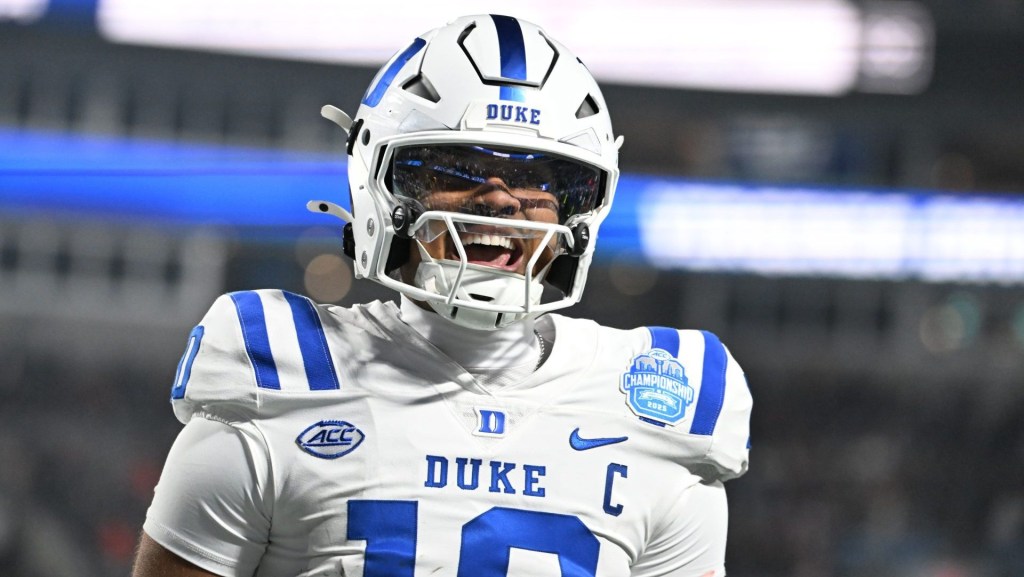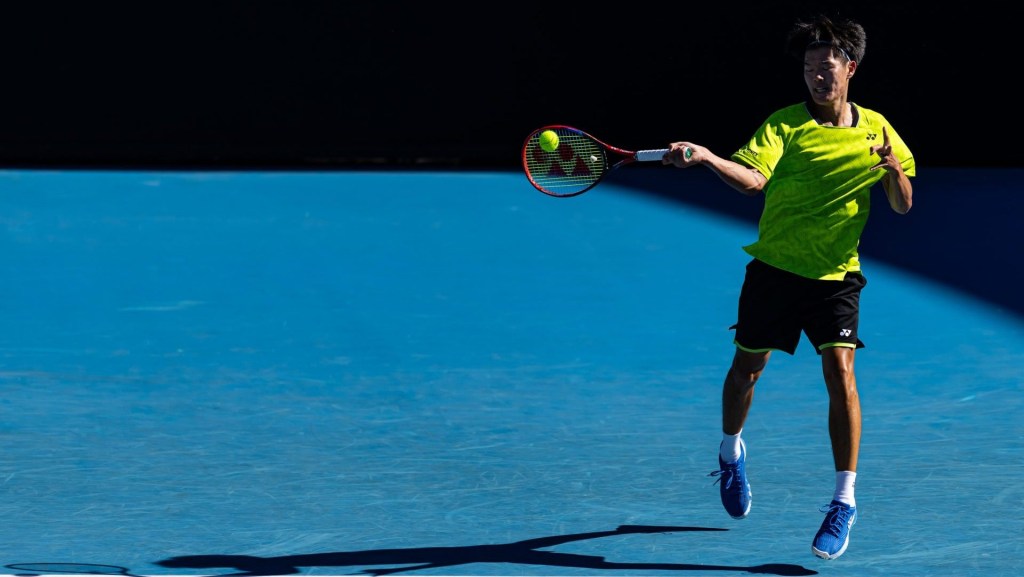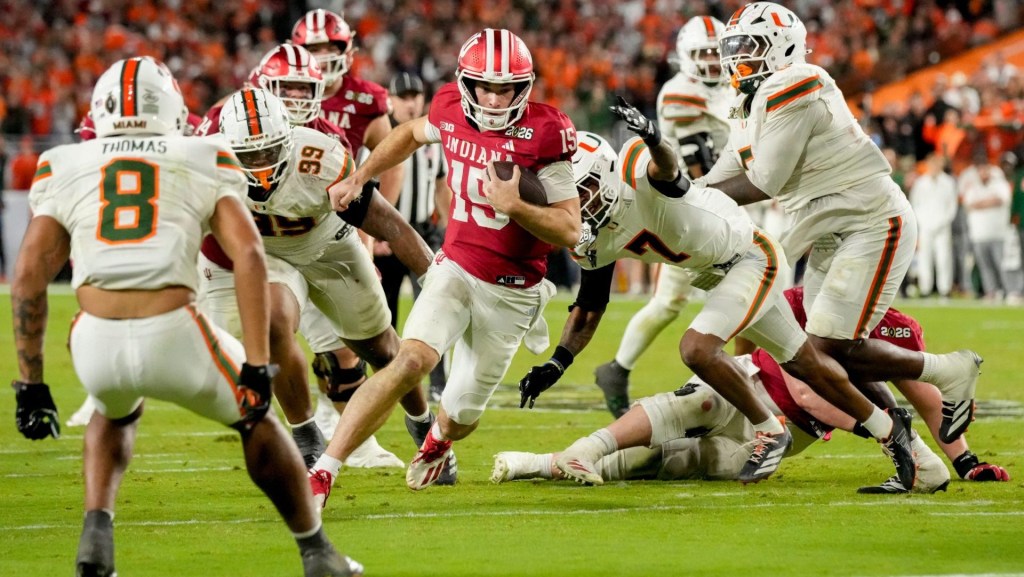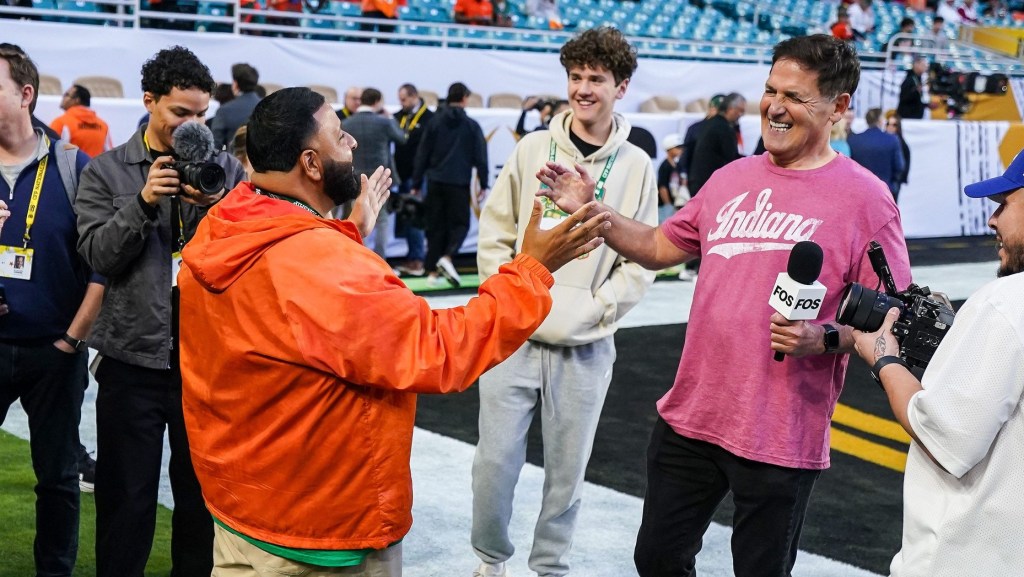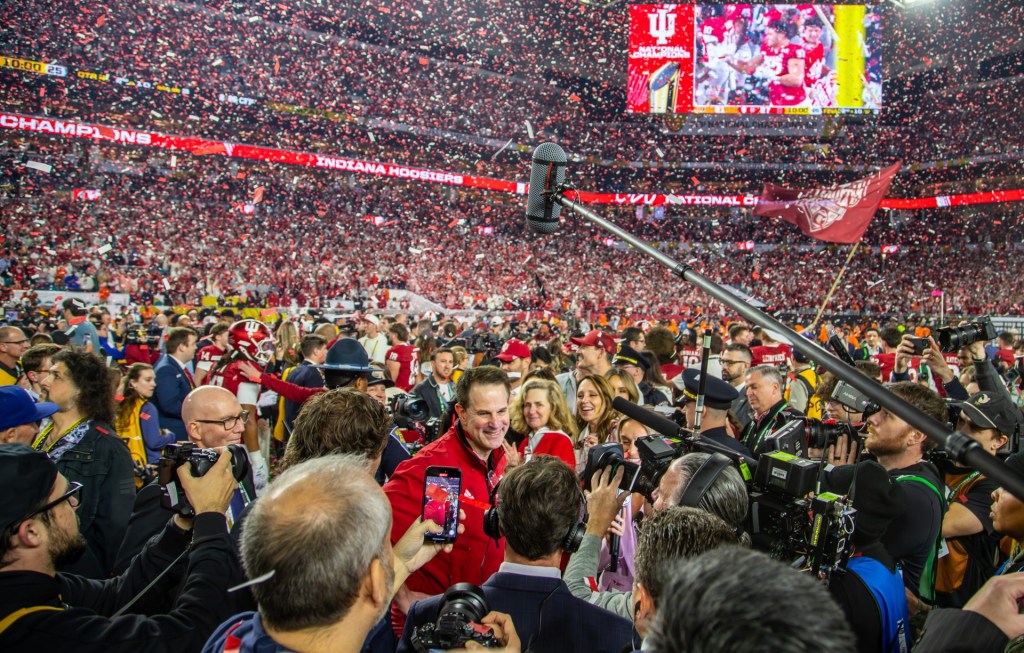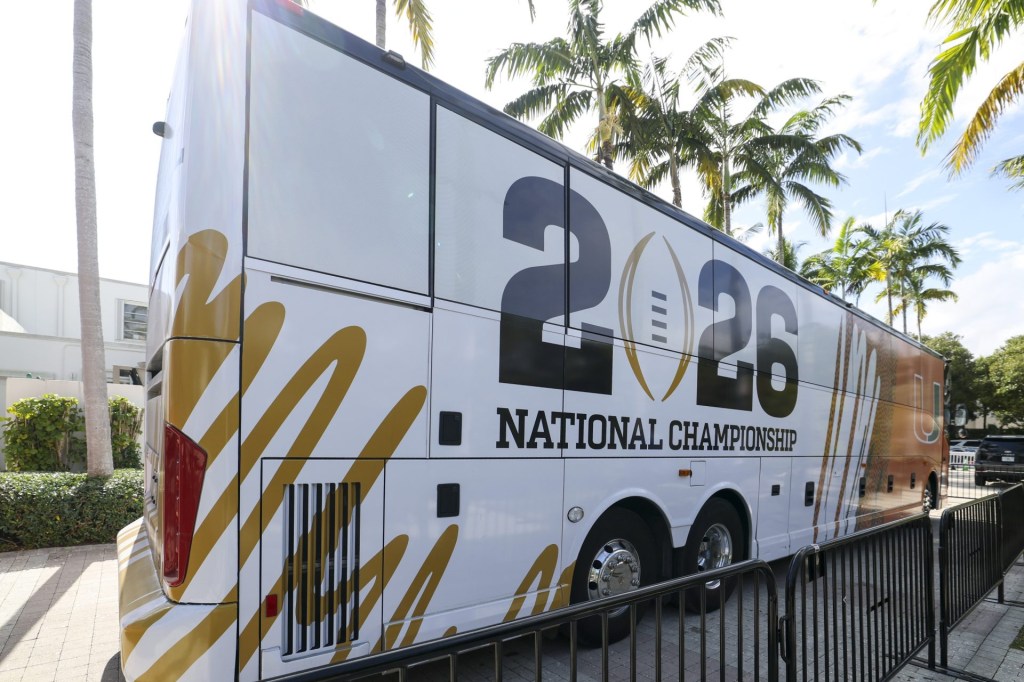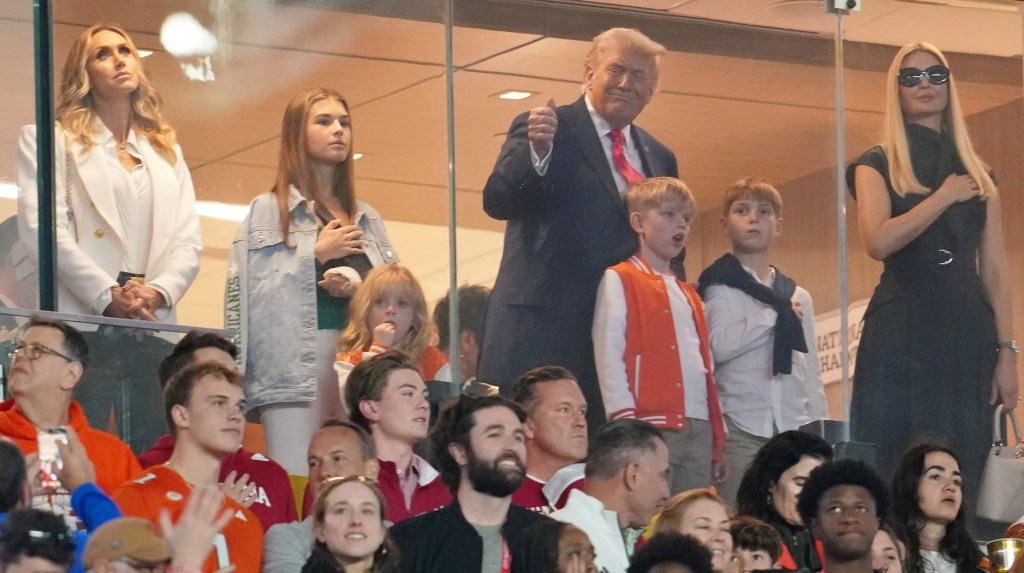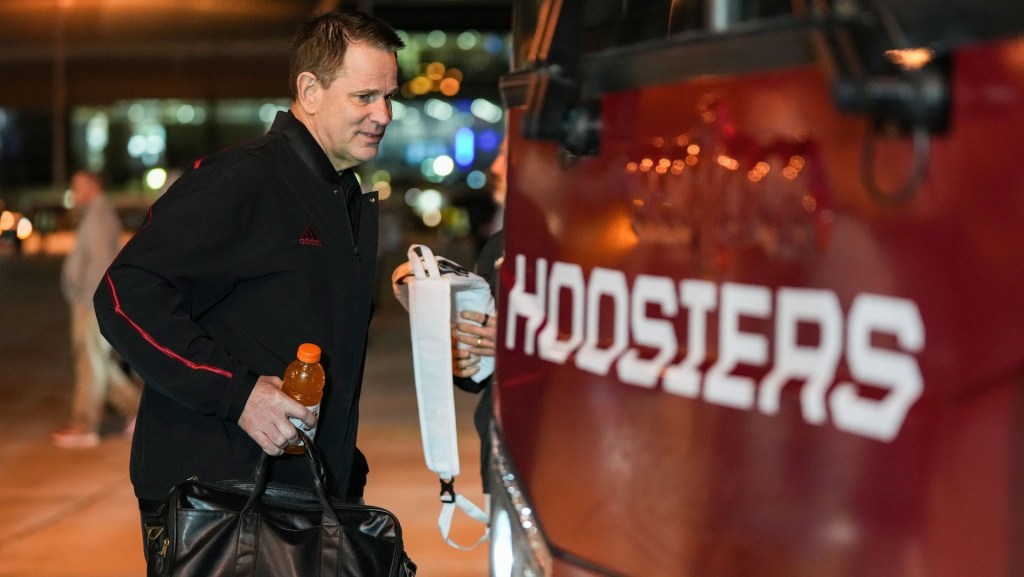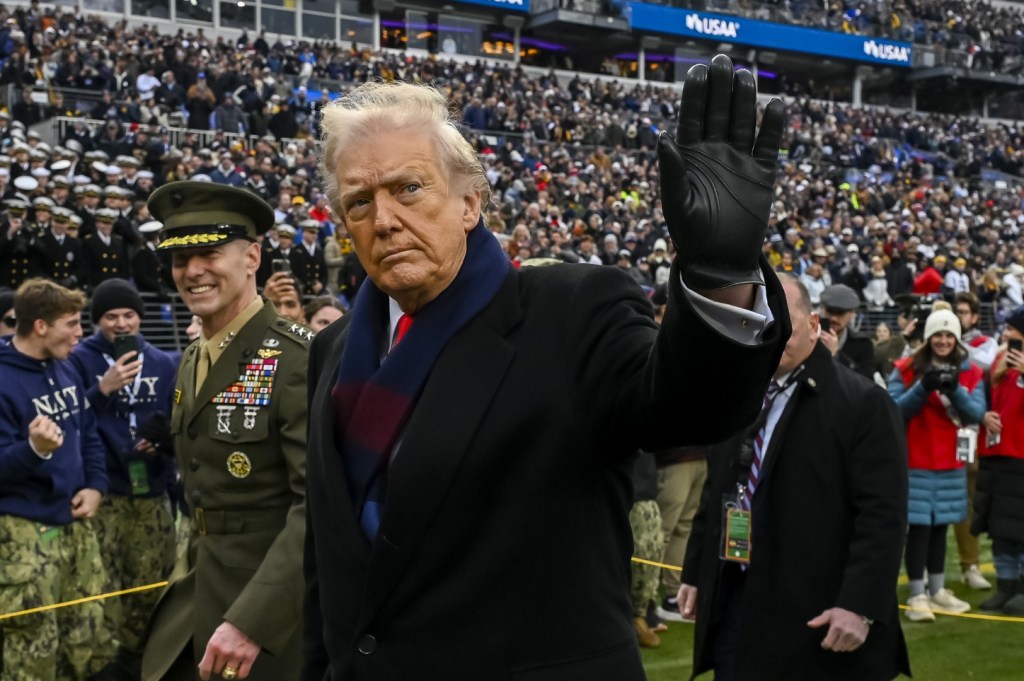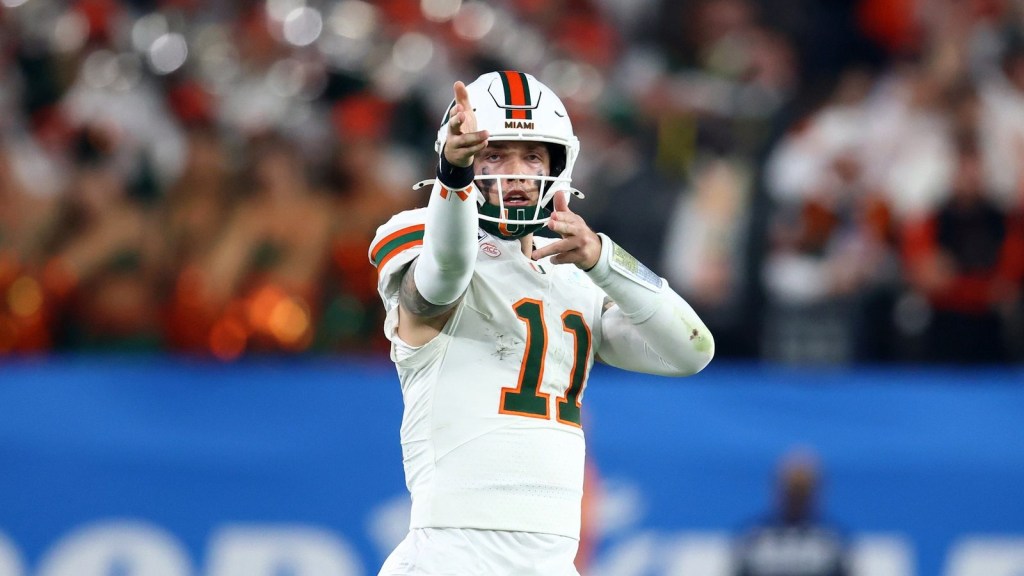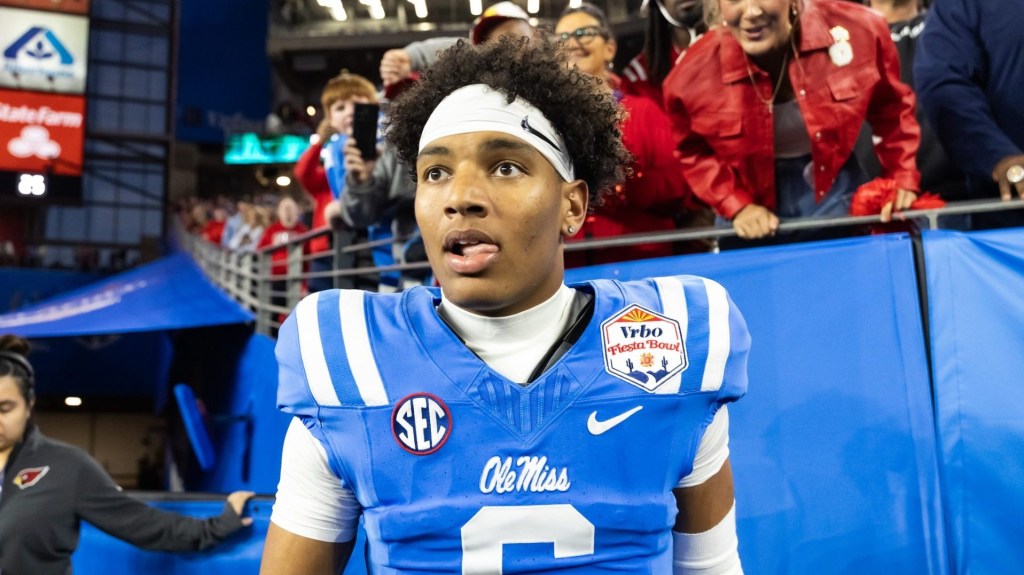After months of negotiations, the power conferences have agreed “in principle” to enforcement terms for the House v. NCAA settlement rules. Next up, the schools must sign.
On Wednesday, the College Sports Commission distributed “participation agreements” that require schools follow the new rules regarding roster limits, the revenue-sharing cap, and NIL restrictions—as well as require them to cooperate in investigations and accept penalties, according to a copy of the agreement obtained by Front Office Sports.
The agreement attempts to hold schools accountable for potential rule violations, as well as violations committed by their own athletes or collectives. The agreement also threatens to punish schools if their associated entities (including state attorneys general) sue the CSC on their behalf.
Though not in the agreement, power conferences have also agreed in principle to penalties for violating new NIL rules—which includes, in some cases, a postseason ban, a source told FOS. These rules will be reflected in a new NCAA bylaw. The source also said that investigations could begin in the next few weeks.
The conferences will now distribute the agreement to all schools, who will be asked to sign within two weeks, the source said.
The agreement will not be enforceable until all power conference schools have signed. Once that is completed, non-power conference schools who have opted into the settlement will be asked to sign the agreement. Non-power conference schools did not have input as their power conference counterparts did.
Participation Agreement Terms
If the associated entities of schools, from collectives to players, go rogue and break rules, the schools themselves could be “subject to fines, penalties or other sanctions for these violations,” the agreement says, though they will have opportunities to dispute any violation allegations.
The agreement also aims to prevent lawsuits challenging the CSC or its enforcement rules. Schools are outright prohibited from suing the CSC—and also could face steep penalties if their associated entities sue on their behalf. In this case, that includes state attorneys general. The penalties could include forgoing conference revenue and serving postseason bans.
The participation agreement also requires they submit payments to receive access to the NIL enforcement entity NIL GO and CAPS, the revenue-sharing management system, as well as conducting annual audits to ensure schools are abiding by the revenue-sharing rules.
Impending Punishments and Enforcement
Power conferences have agreed to a set of punishments that are not listed in the participation agreement itself, the source said, and will instead be drafted and voted on as new NCAA bylaws.
The most notable: Schools could receive postseason bans for certain “egregious violations,” like obstructing CSC investigations. The Big Ten had previously indicated that its schools would not sign the agreement until there was consensus regarding the circumstances in which the CSC could impose a postseason ban, a source previously told FOS. This was part of the reason the participation agreements took so long to be finalized, even though they were first introduced several months ago.
Meanwhile, players may face ineligibility for violating these rules. Schools may receive restrictions on how much of their revenue-sharing distribution they can apply to certain teams, as well as employee suspensions from athletics participation and restrictions on transfers.
Up until now, the CSC lacked manpower to investigate violations and enforce rules. It has just a handful of employees, but has recently hired former federal prosecutor Katie Medearis as head of enforcement and deputy general counsel. She has begun working on building out an enforcement team.
The CSC has received meaningful information regarding potential misconduct, the source told FOS, and plans to launch investigations within the next few weeks—though those will not be announced publicly.

